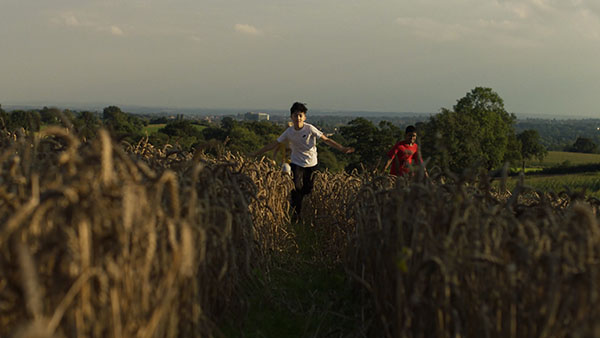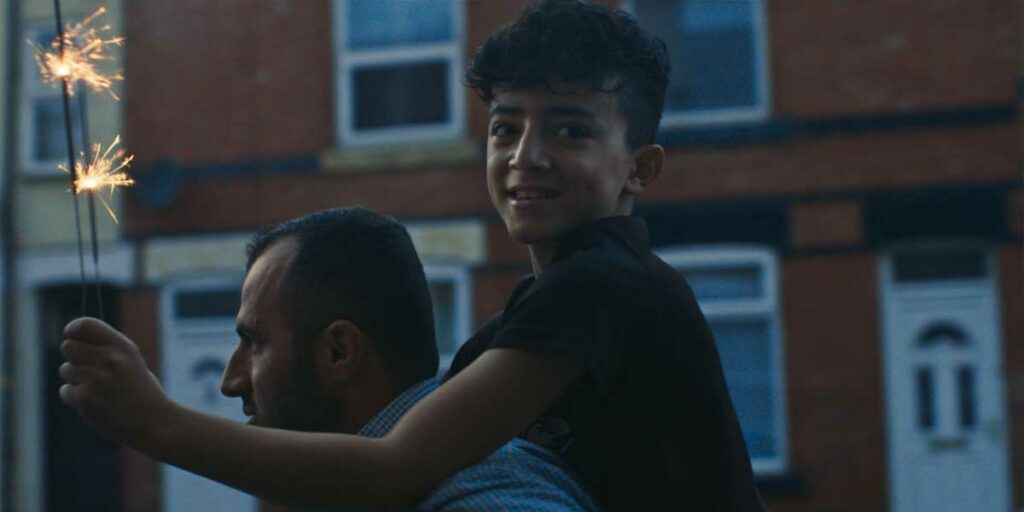Aesthetic and lyrical, Name Me Lawand champions empathy and humanity above all in a world where they sometimes feel forgotten.
Written and directed by Edward Lovelace, Name Me Lawand is a documentary unlike any other I have seen, one that reads more like a movie because of its lyrical moments. But the aesthetic aspect of the documentary, evident in some particularly beautiful shots throughout the film, is only second to its real purpose: introducing the audience to Lawand’s story. What stands out the most in Lawand’s story is its humanity, found in Lawand’s family as well as the community around them and, just as importantly, in the way the filmmaker tells this story.
Name Me Lawand focuses on a young Kurdish boy, Lawand, who has been deaf since birth. His life in Iraq seemed to be destined for loneliness and marginalization, without the adequate help for him. As such, Lawand and his family embark on a desperate journey in search of a better life for Lawand, where he can finally be understood and communicate with others. After a year in refugee camps, they arrive in Derby, where Lawand joins the Royal School for the Deaf. The film follows Lawand at his new school where he learns British Sign Language and makes significant progress in both his studies and social life until the threat of deportation from the UK interrupts the family’s newfound joy.
Most importantly, Name Me Lawand is a film that truly gives Lawand a voice. His case gained media attention, as shown in the documentary, with petitions and articles written about him, but before Lovelace’s documentary, Lawand had never been in charge of his story. The film starts with the boy attempting to speak and, as it goes on, focuses on the narration of his own story, as his interviews determine the pace and structure of the movie. The focus on Lawand is also evident visually, as the documentary features multiple close-ups of the young boy as the story goes on.

Aesthetically, I found the visual choices to be particularly striking in Name Me Lawand, especially for a documentary, since it is a genre of filmmaking that is often associated with less aesthetically pleasing visuals. In this sense, the close-ups and the score by Tom Hodge, with its melodramatic use throughout the film, felt a little bit too out of place for being a documentary and took me out of the documentary atmosphere at times. These were, nonetheless, very interesting choices, giving Lovelace the possibility to explore this story lyrically and emotionally.
I initially found the film hard to follow, but I soon came to realize that this was because the majority of the documentary was, at least for me, told through subtitles. Most of Name Me Lawand is told through interviews with Lawand, his family members, and the people at his school. Many of these interviews are in British Sign Language, subtitled for those of us in the audience who would not be able to follow it were it just in sign language. This was really interesting, as we do not often see sign language on screen, and it is perhaps influenced by the presence of a deaf producer as part of the team, which highlights how significant representation is both on screen and behind it.
While the documentary concludes with a happy ending for Lawand and his family, as they are allowed to stay in Derby, the painful reality is that this does not happen to everyone in their condition. As I was watching Name Me Lawand, I could not help but wonder: how many Lawands are there in the world? How many are there whose story goes unsung and unheard? Particularly in light of recent news and the negative outlook towards immigration from the British government, I kept asking myself how many people could also find a second chance in the UK were they not sent back at the border or left to die at sea, nameless and unknown. Name Me Lawand brings attention to these stories and how important it is to tell them.
.
Name Me Lawand will open in cinemas in the UK and Ireland on 7 July 2023.

